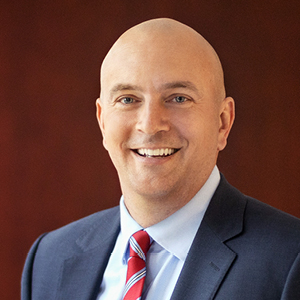In my last article, How Much You Really Need to Save for Retirement, we took a closer look into exactly how much you need to save for retirement based on your personal lifestyle, expenses, income, debt, total assets, as well as inflation and investment return projections. While examining all these areas prior to retirement is very important in ensuring you have saved enough, it’s also incredibly important to know how to manage your financial situation after you retire to ensure your savings lasts.
The key to living comfortably in retirement is having a plan to make your retirement savings last and holding yourself accountable to that plan. If you do not, you may find yourself up a creek without a paddle once you make the official plunge into retirement. Here are a few tips for making your retirement savings last.
If retirement is still in the distance, save, save, save!
If retirement is still in the distance for you, this tip is for you. Start saving early and save as much as you can. One of the keys to making your retirement savings last is simply saving enough, which often requires starting early. Too often, I see clients who still have a way to go until retirement age think they can postpone investing for retirement. They later must face the reality that their total savings will not last their entire retirement, especially not for the lifestyle they wish to have.
By saving early, you can take advantage of compounding interest – interest that builds upon your principal over time – as well as dollar cost averaging, which is an investment strategy that entails buying equities at different prices over a period of time to reduce the impact of volatility of financial assets.
An easy way to start is by taking advantage of your employer’s 401(k) program, or if you don’t have one available to you, an individual retirement account (IRA) or Roth IRA. One key rule to investing is to never leave money on the table, so if your employer is offering a match, contribute at least enough to your 401(k) to receive the match and pay attention to your employer’s vesting schedule – the amount of service time that must pass for you to be entitled to the match funds – so you can retain as much of this “free money” as possible.
If you’re nearing retirement, set realistic expectations of income and expenses
Many of my clients who are concerned about making their retirement savings last are nearing retirement and worry they haven’t saved quite enough. No matter how much you have saved, it’s important to set realistic expectations around at what age you will retire, what income you will have coming in, whether you will be able or willing to work part-time in retirement, and what expenses or debt you will still be responsible for.
A tool that can help you make your retirement savings last is budgeting. Consider all your income streams – from retirement accounts, Social Security, rental properties, etc. – and factor in your monthly expenses. If you’re under 65, don’t forget to account for the cost of health insurance.
Once you have an outline of how much money you have coming in and what expenses you must cover each month, you may need to make some adjustments, such as planning for additional income streams to cover costs, removing some expenses if possible, or delaying retirement. For example, by eliminating larger debts, such as a mortgage or a credit card balance, before you retire, you can increase your monthly cash flow during retirement.
Whether retirement is still in the distance or is approaching soon, saving as much as possibly, budgeting properly, living within your means, and being aware of future needs are all key to stretching your dollars in retirement.
Jason Egge is a Financial Advisor with Securities America Advisors, Inc. Securities offered through Securities America, Inc., member FINRA/SIPC. Bankers Trust, BTC Financial Services, a division of Bankers Trust, and Securities America are separate companies. Check the background of this investment professional on FINRA’s BrokerCheck.
Not FDIC Insured. No Bank Guarantees. May Lose Value. Not a Deposit. Not Insured by Any Government Agency.
This site is published for residents of the United States and is for informational purposes only and does not constitute an offer to sell or a solicitation of an offer to buy any security or product that may be referenced herein. Persons mentioned on this website may only offer services and transact business and/or respond to inquiries in states or jurisdictions in which they have been properly registered or are exempt from registration. Not all products and services referenced on this site are available in every state, jurisdiction or from every person listed.








 Equal Housing Lender. SBA Preferred Lender. NMLS #440379
Equal Housing Lender. SBA Preferred Lender. NMLS #440379